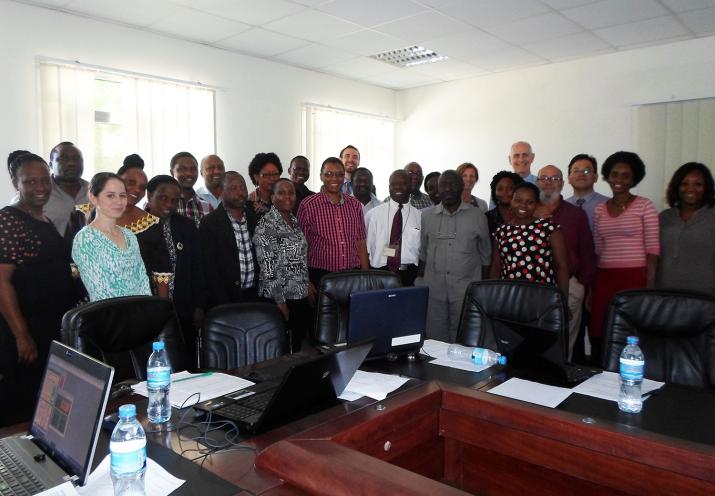
Participants of the MDAST training in Dar es Salaam, Tanzania
Published December 9, 2014 under Research News
On Thursday, December 4, Randall Kramer, DGHI deputy director, co-presented a malaria research dissemination workshop in Dar es Salaam. Other presenters included Adriane Lesser, research analyst at DGHI, and colleagues from the University of Michigan, North Carolina State University, University of Texas at Dallas and the National Institute for Medical Research in Tanzania.
Titled “Implementation science for improved decision-making on larviciding and early detection and treatment strategies in rural Tanzania,” the goal of the workshop was to disseminate results and gather feedback from key stakeholders on the progress of the malaria research as well as next steps in the project. Microbial larviciding is a vector control approach to reducing populations of mosquitos that transmit malaria. Presenters summarized the outcomes of household surveys, focus groups and interviews, and shared intervention results and information about a new larviciding project.
The presenters also discussed and demonstrated the Malaria Decision Analysis Support Tool (MDAST), a framework for assessing the health, social, and environmental risks of different malaria control strategies.
“The team was excited to share the promising preliminary results of this project,” said Kramer. “Through our discussions, we gained valuable insight from individuals who play a critical role in preventing and managing malaria in Tanzania.”
On Friday, Kramer, along with Lesser and several other researchers, presented a follow-up MDAST training session.
The National Malaria Control Programme was well-represented, with other participants coming from Tanzania’s Ministry of Health and Social Welfare, district-level offices, WHO, and research institutions.


